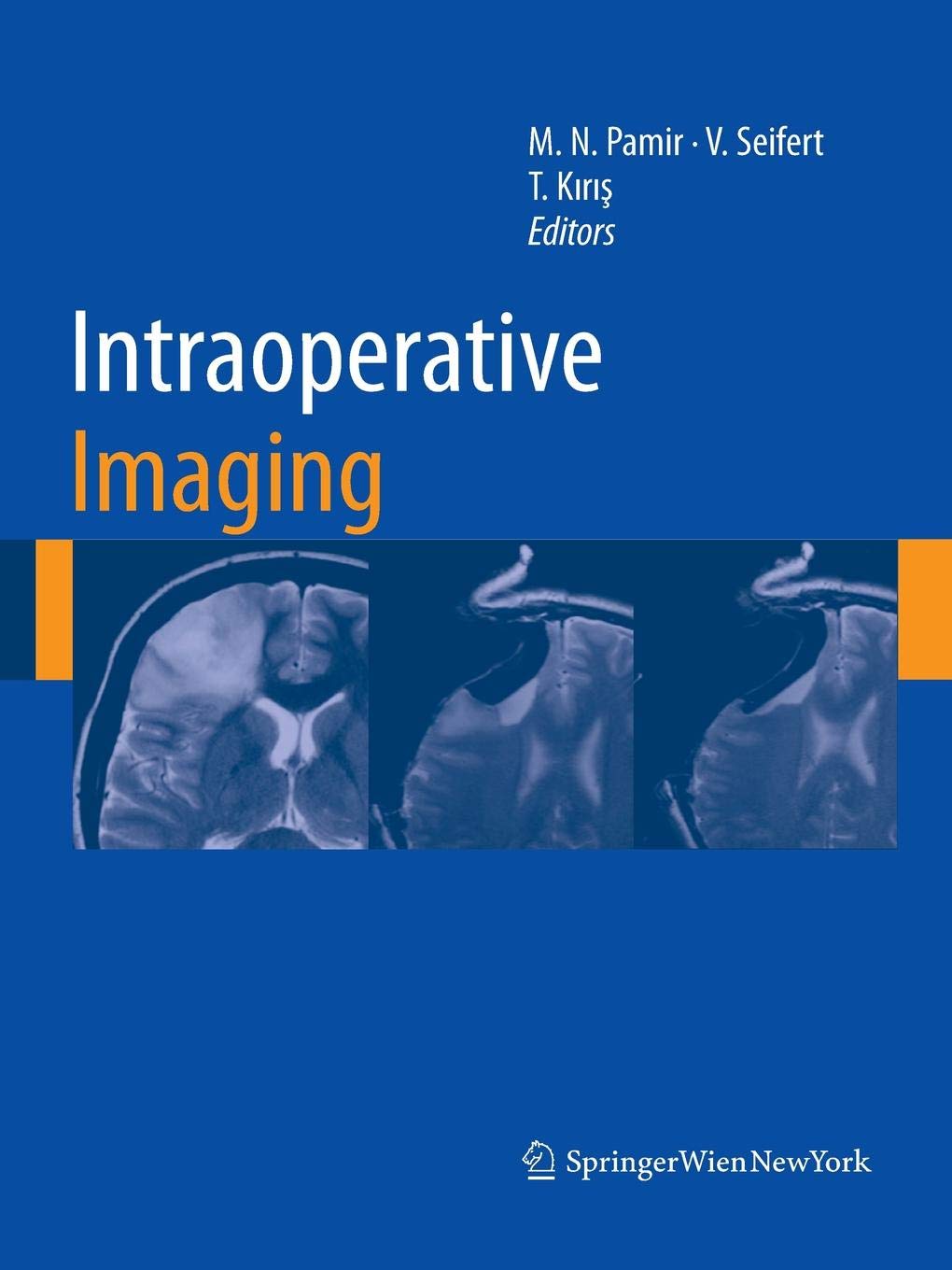




Volker Seifert教授的主要临床领域为血管神经外科,实验研究主要集中在蛛网膜下腔出血后脑血管痉挛的起源。1990年,他获得了德国神经学学会学术研究奖,以表彰他在神经血管领域的突出贡献。尤为擅长显微外科和微创脑肿瘤外科手术、颅内动脉瘤及脑血管畸形手术、肿瘤显微手术、脊柱显微手术、计算机图像引导的显微神经外科手术。
在多所大学任职后,1999年Volker Seifert教授担任法兰克福大学神经外科教授和主席。2001年,担任法兰克福大学临床神经科学中心主任,该中心被认为代表欧洲复杂神经血管疾病和脑肿瘤显微外科领域的至高水平。他发表了500多篇学术文章于期刊和医学教科书上,内容包括血管神经外科、影像引导下脑肿瘤手术及颅底手术。他是目前德国神经外科的学会会长。
发表了500多篇学术文章于期刊和医学教科书上,内容包括血管神经外科、影像引导下脑肿瘤手术及颅底手术。

术中成像技术在神经外科医生的日常工作中发挥着越来越大的作用,国际间的相互作用和合作日益引起人们的关注和兴趣。术中影像学会成立于2007年。这本书汇集了从2009年6月14日至17日在伊斯坦布尔举行的术中成像学会第二次会议的要点。本书内容包括术中成像技术的出现和发展概况,以及该技术的发展方向。其次是术中MRI技术的详细介绍以及术中CT和超声的切片。还有关于多模态集成、术中机器人和其他术中技术的部分。我们相信这本书将提供一个最新的和全面的概述,目前的术中成像技术,以及详细的讨论个别技术和临床结果。
Volker Seifert教授作为INC国际神经外科医生集团旗下组织世界神经外科顾问团(WANG)成员,2018年11月24日应邀来华参加INC2018全球神经外科顾问团年度峰会,与INC(International Neurosurgeons' Circle) 旗下其他9位国际神经外科领域大师以及近70位国内神经外科专家学者汇聚上海一起见证世界神经外科界极高规格的一次交流大会。共同探讨神经外科领域前沿技术进展,分享世界领先的诊疗策略和手术技术,为神经外科患者提供世界领先、尖端前沿的治疗技术资讯。
1. Influence of pregnancy on glioma patients.
2. Infective endocarditis in patients with pyogenic spondylodiscitis: implications for diagnosis and therapy.
3. A novel grading system for the prediction of the need for cerebrospinal fluid drainage following posterior fossa tumor surgery.
4. Electrode placement accuracy in robot-assisted epilepsy surgery: A comparison of different referencing techniques including frame-based CT versus facial laser scan based on CT or MRI.
5. Predictive variables for the presence of vascular malformations as the cause of basal ganglia hemorrhages.
6. Focused review on seizures caused by meningiomas.
7. Prognostic risk factors for postoperative hemorrhage in stereotactic biopsies of lesions in the basal ganglia.
8. The Value of Computed Tomography Imaging of the Head After Ventriculoperitoneal Shunt Surgery in Adults.
9. Impact of resection on overall survival of recurrent Glioblastoma in elderly patients.
10. The Impact of Early Corticosteroid Pretreatment Before Initiation of Chemotherapy in Patients With Primary Central Nervous System Lymphoma.
11. Pain medication at ictus of subarachnoid hemorrhage-the influence of one-time acetylsalicylic acid usage on bleeding pattern, treatment course, and outcome: a matched pair analysis.
12. Invasive EEG-electrodes in presurgical evaluation of epilepsies: Systematic analysis of implantation-, video-EEG-monitoring- and explantation-related complications, and review of literature.
13. Repeated in-field radiosurgery for locally recurrent brain metastases: Feasibility, results and survival in a heavily treated patient cohort.
14. Posterior fossa AVMs: Increased risk of bleeding and worse outcome compared to supratentorial AVMs.
15. Tractography Verified by Intraoperative Magnetic Resonance Imaging and Subcortical Stimulation During Tumor Resection Near the Corticospinal Tract.
16. Surgery for Glioblastoma in Light of Molecular Markers: Impact of Resection and MGMT Promoter Methylation in Newly Diagnosed IDH-1 Wild-Type Glioblastomas.
17. Influence of ABO blood type on the outcome after non-aneurysmal subarachnoid hemorrhage.
18. A benchmark approach to hemorrhage risk management of cavernous malformations.
19. Dexamethasone-induced leukocytosis is associated with poor survival in newly diagnosed glioblastoma.
20. Robot-guided stereoelectroencephalography without a computed tomography scan for referencing: Analysis of accuracy.
21. Cross-sectional Area of the Median Nerve Before Revision Carpal Tunnel Release-A Cross-sectional Study.
22. Vasomodulatory effects of the angiotensin II type 1 receptor antagonist losartan on experimentally induced cerebral vasospasm after subarachnoid haemorrhage.
23. Acute subdural hematoma in patients on oral anticoagulant therapy: management and outcome.
24. Significant increase in acute subdural hematoma in octo- and nonagenarians: surgical treatment, functional outcome, and predictors in this patient cohort.
25. Stereotactic biopsy of cerebellar lesions: straight versus oblique frame positioning.
26. Noninvasive Transfontanelle Monitoring of the Intracerebral Pressure in Comparison With an Invasive Intradural Intracranial Pressure Device: A Prospective Study.
27. Positive influence of partial resection on overall survival of patients with overlapping glioblastomas.
28. Rapid ventricular pacing for clip reconstruction of complex unruptured intracranial aneurysms: results of an interdisciplinary prospective trial.
29. Crosstalk between the angiotensin and endothelin system in the cerebrovasculature after experimental induced subarachnoid hemorrhage.
30. Biopsies of pediatric brainstem lesions display low morbidity but strong impact on further treatment decisions.